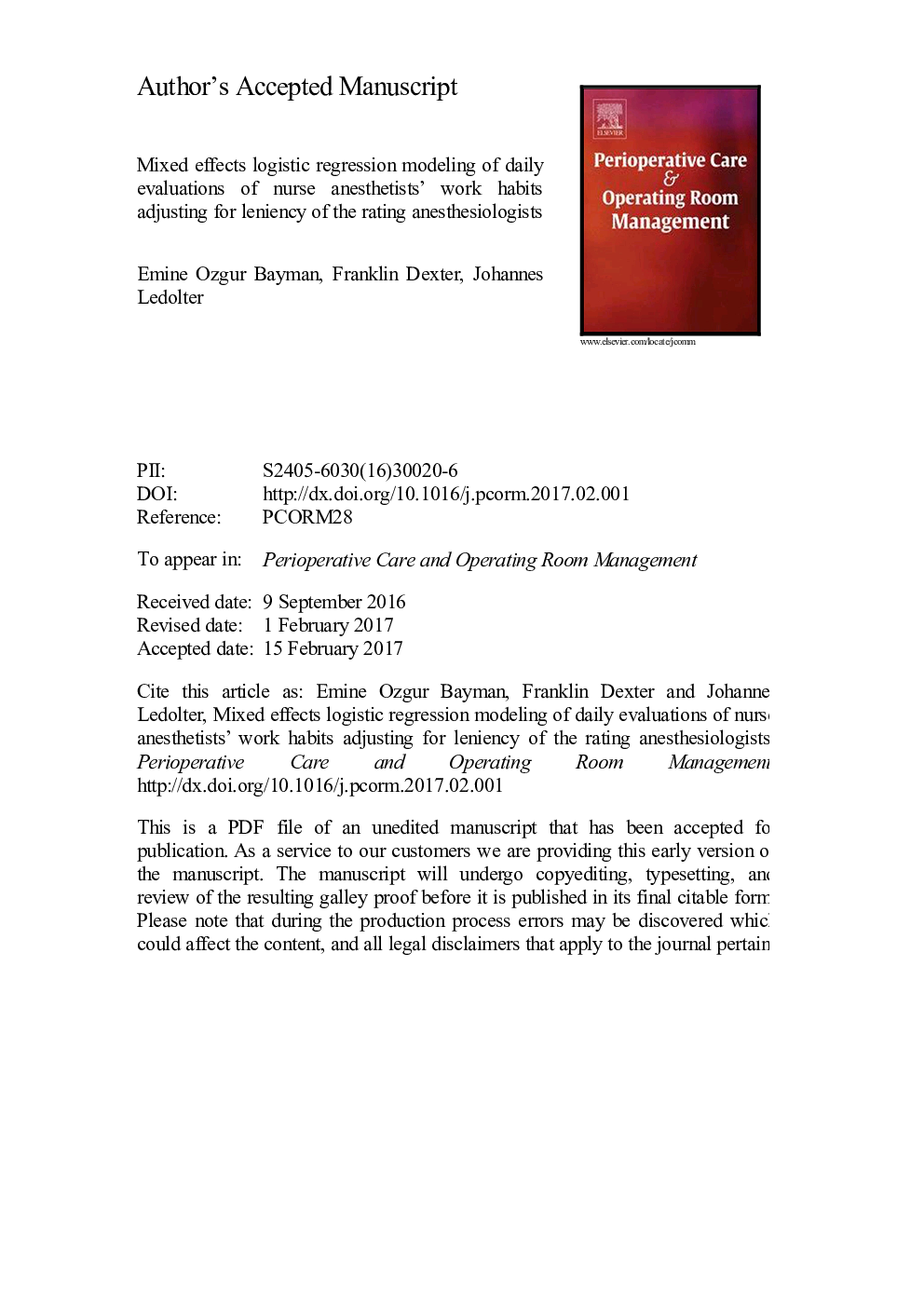| Article ID | Journal | Published Year | Pages | File Type |
|---|---|---|---|---|
| 7429524 | Perioperative Care and Operating Room Management | 2017 | 24 Pages |
Abstract
Ideally operating room professionals work hard, are enthusiastic, and punctual. These are the characteristics of “work habits.” This article covers mixed effects logistic regression modeling for the identification of outlier nurse anesthetists (ratees) while treating daily evaluation scores of their work habits as binary data and statistically adjusting for the leniency of scoring among rating anesthesiologists. We show no apparent lack of additional useful information from treating the work habits scores as simply binary. In addition, the results are insensitive to the threshold. However, we show complications (e.g., different statistical packages giving different answers) when some anesthesiologists rate all nurse anesthetists as having perfect work habits. Because of this, representing the rating anesthesiologist as a fixed effect has numerical advantages. We consider a random effects model for the nurse anesthetists' work habits scores. This provides shrinkage towards the overall mean especially for those nurse anesthetists with few evaluations (i.e., less likely to classify average providers as outliers). Identification of individual nurse anesthetists as outliers can be insensitive to the statistical methods, including different frequentist and Bayesian models. However, results are dramatically different from the simple ranking of raw scores of the nurse anesthetists.
Related Topics
Health Sciences
Medicine and Dentistry
Anesthesiology and Pain Medicine
Authors
Emine Ozgur Bayman, Franklin Dexter, Johannes Ledolter,
